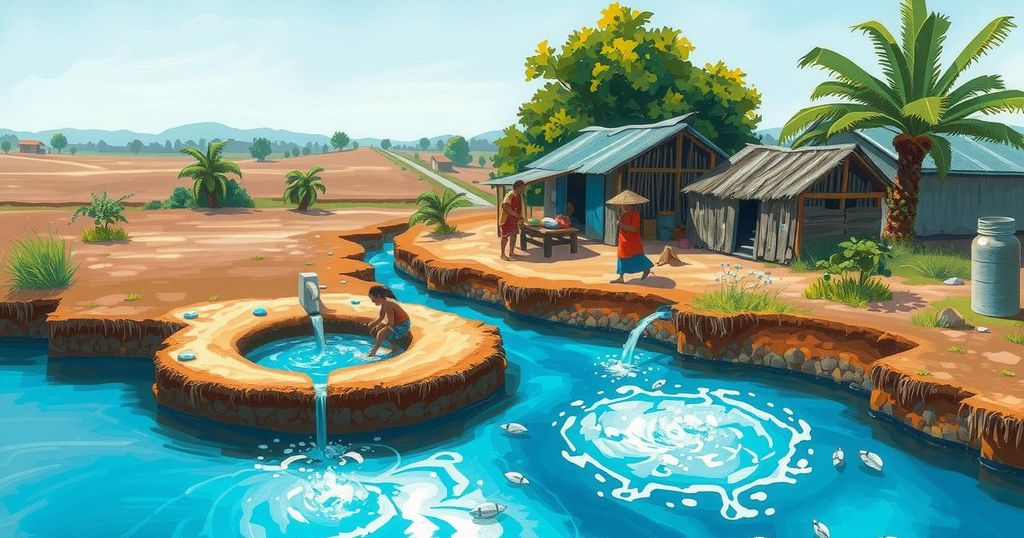Cholera Continues to Plague DRC Amid Deepening Humanitarian Crisis

- The DRC faces one of the worst cholera outbreaks in its history.
- Over 1,450 cases and 27 deaths have been reported in Tanganyika alone.
- Children under five are disproportionately affected due to malnutrition.
- WHO and NGOs are mobilizing resources to combat the outbreak.
- Inadequate water infrastructure is a critical factor in cholera’s spread.
Cholera Outbreak Escalates in Southern DRC
Cholera continues to plague the Democratic Republic of Congo (DRC), revealing significant flaws in health systems, water access, and emergency responses. The situation has recently worsened, with the southern province of Tanganyika experiencing one of the most severe outbreaks. On April 3, 2025, the United Nations reported alarming figures: 9 out of 11 health zones were impacted, tallying up to over 1,450 confirmed cases accompanied by tragic fatalities—27 deaths recorded—they represent a distressing six-fold increase compared to the previous year.
Children Severely Impacted by Cholera Epidemic
By the start of June, the cholera crisis had spread extensively across the country, with the World Health Organization (WHO) announcing a staggering 29,392 suspected cholera cases and 620 deaths nationwide. This marked the most alarming outbreak the DRC has faced in six years. Strikingly, children under five are bearing the brunt of this epidemic, with malnutrition and compromised immunity exacerbating their vulnerability to the illness, as access to clean water is alarmingly scarce, and sanitation remains largely inadequate in many regions.
Need for Structural Investments in Health Infrastructure
The underlying cause of cholera’s persistence in the DRC is not solely related to the disease itself, but the overall humanitarian landscape shaped by widespread poverty, conflict, and collapsing infrastructure. Various studies indicate that unsafe water sources—such as Lake Kivu and other contaminated rivers—have become the primary suppliers for many communities, putting further strain on health resources already stretched thin. Initiatives like the Global Task Force on Cholera Control’s roadmap have aimed to tackle this issue, however, as we inch closer to 2030, the DRC’s progress has been minimal, with exacerbating outbreaks suggesting an urgent need for comprehensive reforms and dedicated child-focused healthcare.
The situation regarding cholera in the DRC highlights not just a severe public health emergency but also the consequence of deeper humanitarian failures linked to years of conflict and underfunded public health systems. Immediate action is necessary to prevent future outbreaks and invest in children who are the most vulnerable. Leadership and resources must aim for sustainable solutions in the DRC, focusing on water infrastructure, healthcare access, and overall stability to create a future devoid of cholera’s threats.






